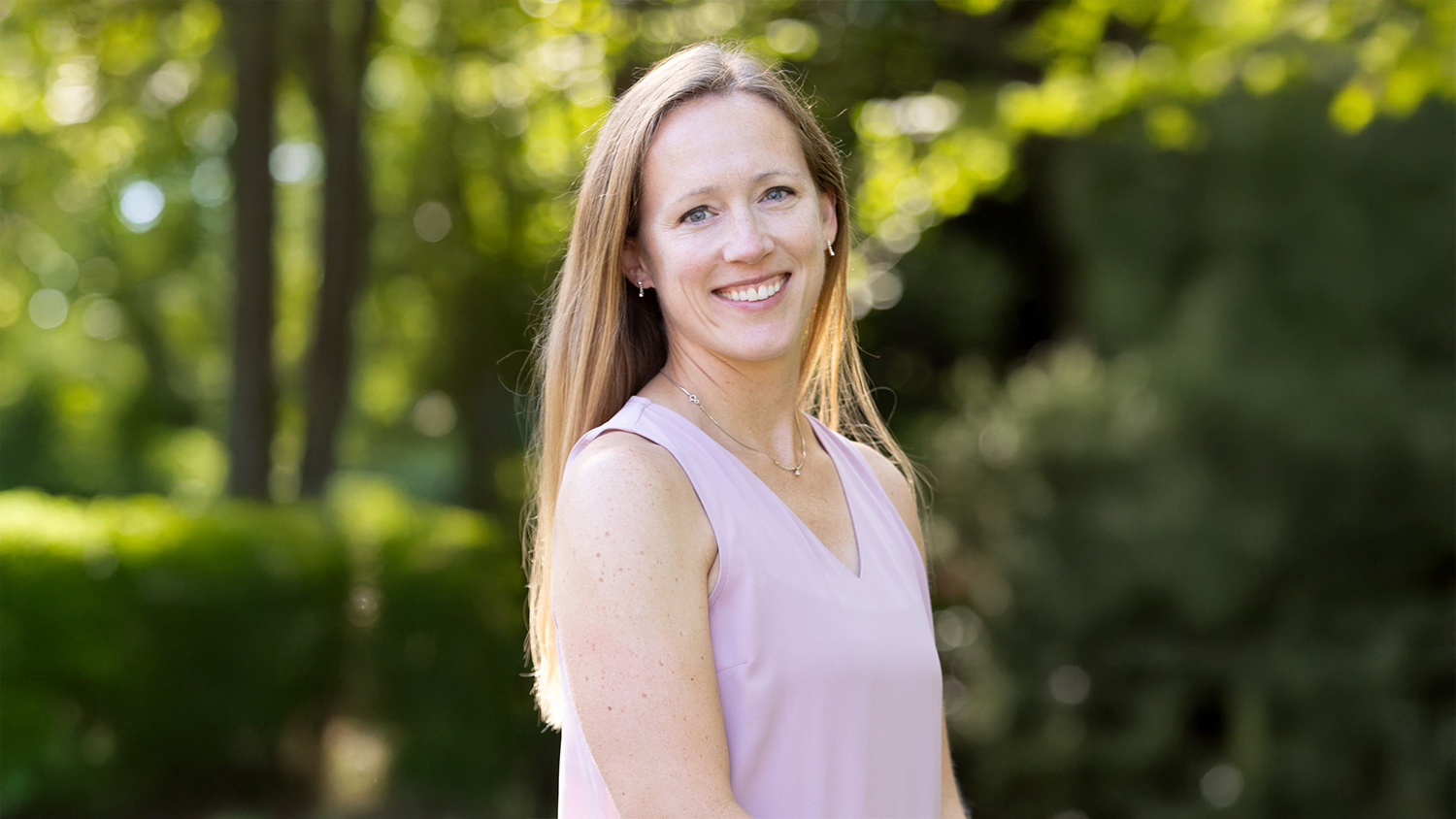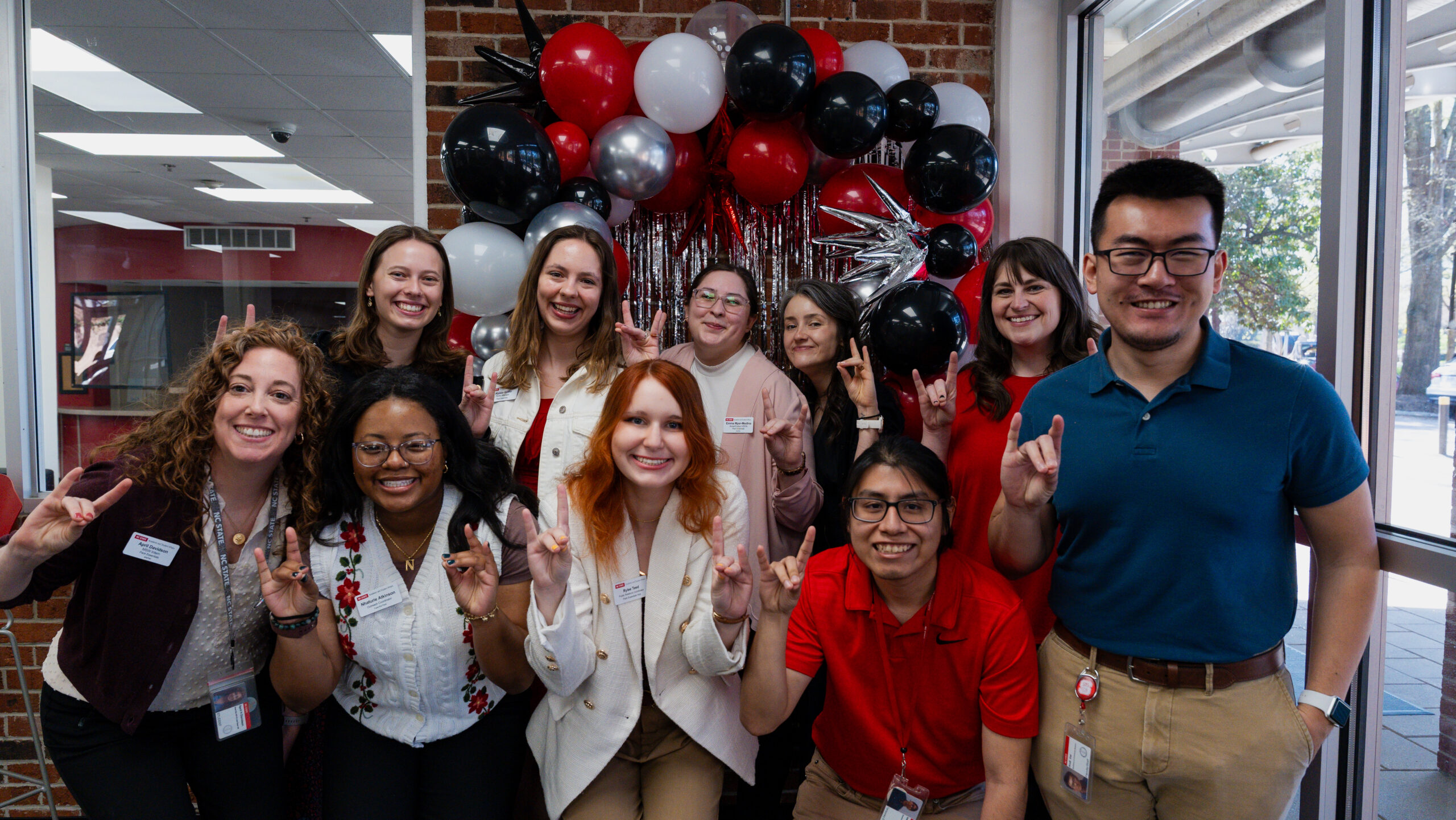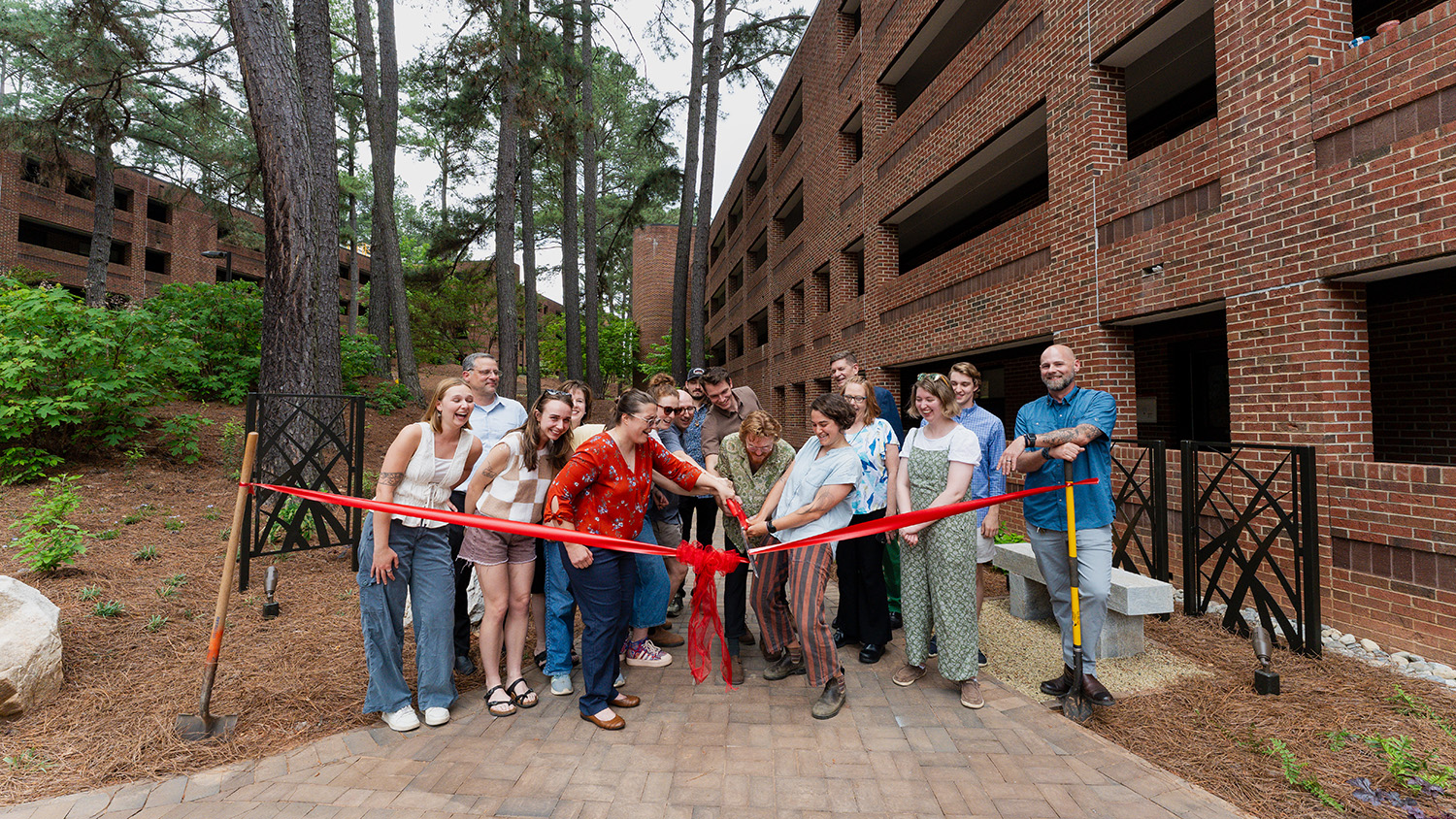Exploring, Living, and Learning
The added value of living on campus
As a first year student at NC State, Peyton Holmquist wasn’t quite sure what she wanted to study, a common challenge faced by many incoming first-year students. But, when she decided to live in the Exploratory Studies Village – one of 14 Living and Learning Villages on campus – she instantly surrounded herself with other students similarly situated as well as a robust staff dedicated to making college life transitions and career path decisions easier.
“Everyone living in the Exploratory Studies Village is either looking for community, looking for friends, or looking to find a major that suits them well,” explains Holmquist.
Spenser Norman, Community Director, Arts Village and Global Village, agrees. “Many first year students arrive on campus wondering: How am I going to connect? How am I going to find a fit? How am I going to find a group to belong to? The university provides that opportunity; the villages take it one step further and provide that community.”
It’s about that added value to an already great university experience that causes students to choose village living.
What makes the Exploratory Studies Village unique is that it is linked to an academic unit – students in the village are required to take one Introduction to University Education course each semester that is taught by their academic advisor. Some students in the village also take a first year inquiry class together. “We really try to link the village with the introductory courses so that it is a holistic experience inside and outside of the classroom,” explains Kimberly Cole, director of Exploratory Studies Village. “Most other villages do not have classes associated with it to the degree that we do.”
An example of this co-curricular approach was an etiquette dinner held last year in conjunction with one of the spring introductory courses. Over 70 students attended to gain insight about generational differences in the workplace and dinner etiquette. The dinner itself was conducted as if it was an actual interview, and it brought the topics being studied in the introductory class – career informational interviewing, professional development, and resumes – full circle.
It’s about that connection to coursework aimed at career preparation.
In addition to providing a shared space for students exploring their college and career paths, the Exploratory Studies Village offers students easy access to resources. The village is located on central campus, with the offices for academic advisors just across the street. And, along with traditional resident advisors, students living in villages also have resident mentors – upperclassmen who experienced the program first hand as first-year students – who collaborate with the resident advisors to provide support and guidance to each student. Resident mentors in the Exploratory Studies Village also serve as teaching assistants in the required introductory courses.
“Resident mentors can engage with students on a deeper level, and they really learn a lot from each other,” notes Durell Hurst, assistant director of University Housing.
Holmquist is just one of the many students who have gone through the program as a first-year student and then returned to serve as a resident mentor. She says that one of the great things about village life is the “great staff-to-student ratio.”
According to Hurst, there is one Resident Advisor for every 60 students and one Resident Mentor for every 30 students. “We care so much about what we are doing, we want as much staff focused on it as possible,” he explains. “When looking at other institutions, it’s really not as hands-on.”
It’s about that additional personal attention.
The amount of both academic and social programming provided in the villages is vast and ongoing, from cultural exchange seminars and stress management programs to video game tournaments, DIY workshops, and academic advising nights. In the village, resident mentors host the “Pack Academic Workshop Series,” offering two sessions a week on topics ranging from global citizenship, service learning, and academic success to major exploration and co-curricular planning.
The Exploratory Studies Village also uses Learning Excursions for students to learn about majors and careers through hands-on experiences. For example, students in the village have visited the Biomanufacturing Training and Education Center (BTEC) to learn about biopharmaceuticals careers and the BTEC minor, the NC State Veterinary Hospital to discuss careers in veterinary medicine and participate in a hands-on lab with fish, and the Conservators’ Center for an in-depth look at animals and the environment.
The Leadership Potential Retreat is offered through the Exploratory Studies Village as a weekend long retreat, students have the opportunity to explore their own capacity for leadership. During the retreat, students assess their strengths and leadership styles while also focusing on group dynamics and communication skills. “It pushes them toward confidence,” says Caitlin Grindall, one of the residence directors for the Exploratory Studies Village. “Normally by the end of it, they don’t want to go. They have become like a small family.”
It’s about that focus on growth.
There is one annual event in the Exploratory Studies Village, however, that may have rights over all others. More specifically, naming rights. Located between Tucker and Owen Halls is a green space known as “The Beach” which is home to a sand volleyball court. Each year, in what has come to be known as “The Battle of the Beach,” the two halls compete in a variety of outdoor events like volleyball and tug-of-war, with the winner claiming rights to “The Beach” for the year. If Tucker Hall wins, it’s called Tucker Beach for that year. If Owen Hall wins, it’s Owen Beach for the year. Last year, over 245 residents attended in addition to approximately 50 parents and family members. It’s one of those cases where no matter who wins, everyone wins. Which is sort of the overall theme among all of the villages.
It’s about everyone working together to help each other find their way.
“Students living in a village setting are more apt to have a high GPA, tend to graduate from college within four or five years, have more experiences to list on a resume, and are more involved overall as students,” further notes Hurst.
“This program really allowed me to find my passion,” says Holmquist. And that’s really what it’s all about.
- Categories:


